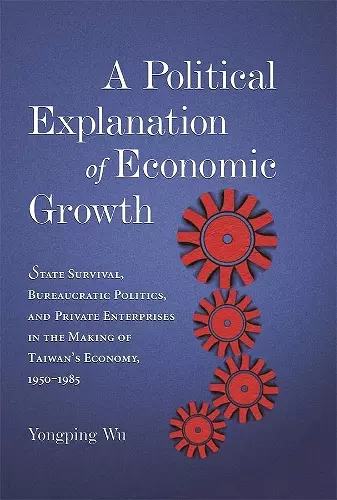A Political Explanation of Economic Growth
State Survival, Bureaucratic Politics, and Private Enterprises in the Making of Taiwan’s Economy, 1950–1985
Format:Hardback
Publisher:Harvard University, Asia Center
Published:26th Jun '05
Currently unavailable, and unfortunately no date known when it will be back

Taiwan is a classic case of export-led industrialization. But unlike South Korea and Japan, where large firms have been the major exporters, before the late 1980s Taiwan's successful exporters were overwhelmingly small- and medium-sized enterprises (SMEs). The SMEs became the engine of the entire economy, yet for many years the state virtually ignored the SMEs and their role as exporters.
What factors account for the success of the SMEs and their benign neglect by the state? The key was a strict division of labor: state and large private enterprises jointly monopolized the domestic market. This gave the SMEs a free run in export markets. How did this industrial structure come into being? The author argues that it was an unintended consequence of the state's policy toward the private sector and its political strategies for managing societal forces. Indeed, Taiwan's unique industrial structure was shaped by both the witting and the unwitting interactions of the state and the private sector. Moreover, as the author shows, this industrial policy was a product of the internal politics of the economic bureaucracy, and the formulation and implementation of economic policy hinged on mechanisms for solving differences within the state.
- Nominated for John K. Fairbank Prize in East Asian History 2006
- Nominated for Joseph Levenson Book Prize 2007
ISBN: 9780674017795
Dimensions: unknown
Weight: 748g